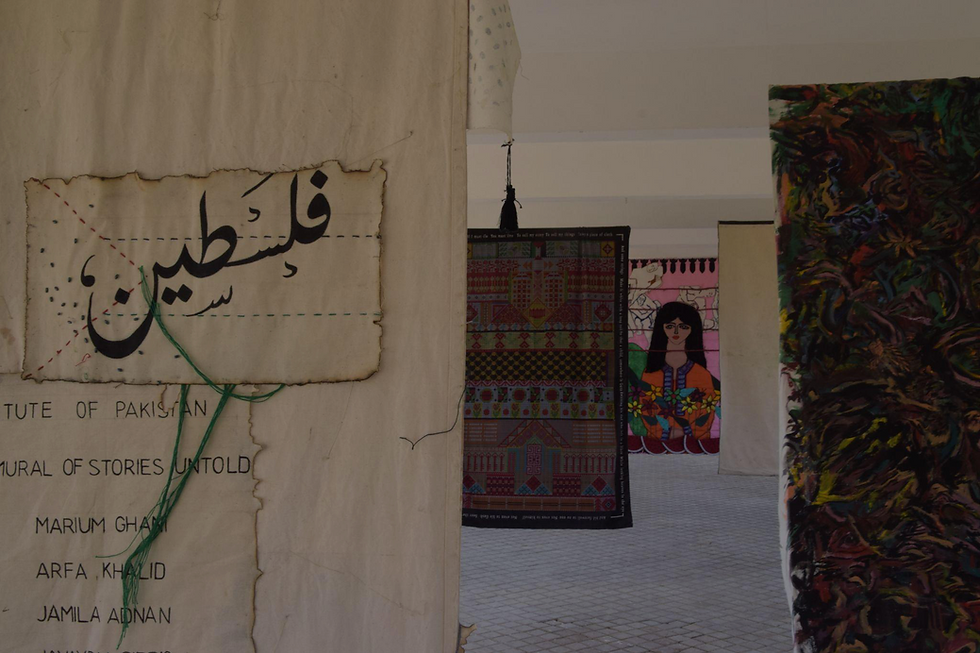Stories and Reflections in the Biennale’s Reading Room
- The Aleph Review

- Nov 4, 2024
- 2 min read
Updated: Nov 5, 2024
Nayab Shaikh
The KB24 Reading Room became a refuge for stories, memories and collective histories. This is part of our ongoing coverage of the Karachi Biennale 2024.
The PAWPE reading room awaited the audience following the Palestine artwork exhibition— a space to reflect and reconnect; an intimate retreat amidst the powerful visuals of resilience and survival. The audience was invited to pause, rest, and dive into the various publications of our esteemed guests, turning the room into a sanctuary of knowledge and quiet compassion. Nestled under the walkway at Bagh Ibn e Qasim, it felt like a private retreat where history, stories, and conversations could settle quietly.

Low, comfortable seating was arranged to encourage intimate gatherings, while the dividers bore the gentle wear of handwritten notes, sketches, and photographs. Red and orange cushions livened up the space and allowed visitors to be at ease.
In the first reading room session, held on October 28th, Attiya Dawood, Qamar Bana and Tapu Javeri guided guests into the heart of Karachi through their words, pages and memories. The weight of history and the beauty of Karachi’s architecture unfolded like quiet whispers. Attiya’s words traced forgotten lanes and lingered in the shade of ancient courtyards. Qamar, with her quiet conviction, shared the story of a city forever in motion, shifting and evolving. Tapu’s lens captured the soul within Karachi’s facades. At the end of this session, Karachi emerged as a place both familiar and entirely new.

In the second session, held on November 1st, Mehvash Amin and Muneeza Shamsie layered new depth to the Biennale’s exploration of art and identity. Mehvash Amin, publisher of The Aleph Review and a writer/poet, known for her eloquent narratives on societal nuances, shared from her recent publications, shedding light on how literature captures the complexities of life in Pakistan. Beside her, Muneeza Shamsie, a revered critic and editor, provided insights on the evolution of South Asian literature and its impact both locally and globally. Their session bridged past and present, creating a dialogue on the power of stories to shape identity, history and collective memory.

The reading room became a quiet heartbeat of the Karachi Biennale, a place where art met the written word and history mingled with reflection. Those who sat there didn’t just read—they breathed in the essence of Karachi. Compassion filled the air, binding strangers and friends alike to the city they thought they knew, but would leave seeing as something far more profound, timeless and—most importantly—theirs.

Together, these sessions wove an intimate tapestry of memory, grounding us in the past while inspiring new ways of seeing and belonging. Each word was inspired, rooting us in the moment. The evenings painted a picture of literature and remembrance within us.











Yorumlar